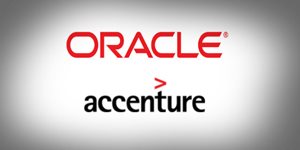Will Oracle Spend Over $70 Billion to Acquire Accenture?
Everyone in the tech community is talking about the takeover speculation prompted by a report in The Register that cites unnamed sources saying Oracle has “hired global specialists to explore the feasibility” of buying Accenture, a global tech consulting and services company. Those global specialists are not only looking at the financial aspects of the deal but also exploring “the synergies that could be created if they [Oracle] bought Accenture lock stock and barrel.”
in The Register that cites unnamed sources saying Oracle has “hired global specialists to explore the feasibility” of buying Accenture, a global tech consulting and services company. Those global specialists are not only looking at the financial aspects of the deal but also exploring “the synergies that could be created if they [Oracle] bought Accenture lock stock and barrel.”
Although the acquisition could be the technology industry’s largest deal yet, even more expensive than Dell Inc.’s $67 billion acquisition of EMC Corp., many analysts and investors shrugged off the possibility of a multibillion-dollar acquisition of the global consultancy firm Accenture Plc. Before diving into the reasons that made industry insiders give a sharp eye to the potential deal, let’s briefly discuss the relationship between the two companies.
Oracle and Accenture have been working together for 25 years, and Accenture was the first to qualify for Oracle's Diamond partner status. They actually have a number of strategic partnerships in place. In April 2015, Accenture and Oracle jointly launched a business group to encourage customers to embrace cloud computing to achieve their digital transformation goals. The Accenture Oracle Business Group, consists of dedicated Accenture and Oracle resources, including 52,000 Oracle-skilled consultants globally, with an additional 20,000 Java-skilled professionals, has developed industry-specific systems built using Oracle’s software-as-a-service and platform-as-a-service solutions delivered via the Accenture Foundation Platform for Oracle, a multi-component development and integration accelerator running in the Oracle Cloud.
Does a Potential Transaction Make Sense to Accenture?
Even though there is a very well established partnership between Accenture and Oracle, Dublin, Ireland-based Accenture also works with a number of Oracle competitors, including SAP, IBM, Microsoft, Workday, AWS, and Salesforce. A potential Accenture/Oracle transaction is likely to put significant strain on those relationships. Any unfavorable impact on those will ripple through and eventually result in revenue loss for Accenture.
Speaking of revenue, Accenture reported $32.9 billion in revenue in its 2016 fiscal year that ended Aug. 31 and has a market capitalization of $77.5 billion. For the quarter that ended Feb. 28, Accenture earned $1.33 per share, down a penny vs. a year earlier. Revenue climbed 4.7% to $8.32 billion, the third straight quarter of gradually decelerating growth.
Additionally, as a global tech consulting and services company, Accenture is supposed to take an objective stand when it comes to recommending its clients utilizing the best-fitted technology and platform in their organizations. So that is another area that a potential Oracle/Accenture deal becomes problematic.
Does a Potential Transaction Make Sense to Oracle?
Given that Accenture has a market cap of USD $78 billion, one of the biggest hurdles to this potential deal would be financing the transaction as it is a big swallow even for acquisitive Oracle that has been an active acquirer of tech companies. Just to name the biggest deals, Oracle spent $10.3 billion on PeopleSoft (2004), $909 million on i-Flex Solutions (2005), $7.4 billion on Sun Microsystems (2009) and $9.3 billion on NetSuite (2016).
Even though Oracle reported cash reserves of $68.4 billion during the company’s most recent earnings call, still to pay a premium on top of Accenture’s whopping market cap, the tech giant will have to splash a great deal of cash. Even with the speculation alone, Oracle's stock was down to $44.69.
Some also think that the potential acquisition could share the same faith with HP’s failed acquisition of EDS and IBM’s unsuccessful acquisition of PWC. Having said that, both companies’ aggressive cloud-focused approach and their long history together generating a synergy can beat the odds.
Although Oracle CTO Larry Ellison has recently taken on Amazon and Microsoft, saying that Oracle now has “a huge technology lead” over Amazon Web Services and Microsoft’s Azure cloud computing service, in reality, Oracle still lags a long way behind clear market leaders. On the other hand, Accenture has made a number of acquisitions to strengthen its position as the go-to business for enterprise cloud services. Cloud Sherpas, New Energy Group, Tquilla UK, and ClientHouse just to name a few. Therefore, Accenture’s "Cloud First" strategy that is designed to provide customers with cloud strategy and technology consulting, along with cloud application implementation, integration, and management services can help Oracle make its way to the top.
Industry Insiders Weigh In On a Potential Transaction
"While Accenture has been growing its top line nicely, keep in mind that the company is one of the largest global partners and system integrators for the likes of SAP (SAP), Salesforce.com(CRM), and ServiceNow (NOW) to name a few. An acquisition by Oracle of one of these vendors' largest partners could put a meaningful amount of Accenture revenue at risk," said Brian Essex, a Morgan Stanley analyst, in a report, and he added: "We view a combination between the two as unlikely as we believe the negatives, in this case, would outweigh the positives."
the largest global partners and system integrators for the likes of SAP (SAP), Salesforce.com(CRM), and ServiceNow (NOW) to name a few. An acquisition by Oracle of one of these vendors' largest partners could put a meaningful amount of Accenture revenue at risk," said Brian Essex, a Morgan Stanley analyst, in a report, and he added: "We view a combination between the two as unlikely as we believe the negatives, in this case, would outweigh the positives."
 Here’s what Moshe Katri, a Wedbush analyst, has to say about the potential deal: "A history of failed, large M&A transactions involving IT Services and Product (SW/HW) vendors combined with challenges integrating businesses with vastly different business models make us skeptical over a potential Accenture/ORCL transaction." Katri added: "Having said that, fundamentally, Accenture is the best positioned large-cap IT Services company to capitalize on increasing funding for digital-based transformational initiatives."
Here’s what Moshe Katri, a Wedbush analyst, has to say about the potential deal: "A history of failed, large M&A transactions involving IT Services and Product (SW/HW) vendors combined with challenges integrating businesses with vastly different business models make us skeptical over a potential Accenture/ORCL transaction." Katri added: "Having said that, fundamentally, Accenture is the best positioned large-cap IT Services company to capitalize on increasing funding for digital-based transformational initiatives."
Citigroup analyst Walter Pritchard said in a report: "We believe services  companies are viewed as credible with their customers when they are significantly independent. Accenture has relationships with nearly all software companies we cover, many of which compete with Oracle (SAP, Salesforce, Workday (WDAY)), making it difficult for an Oracle-owned Accenture to be viewed as independent."
companies are viewed as credible with their customers when they are significantly independent. Accenture has relationships with nearly all software companies we cover, many of which compete with Oracle (SAP, Salesforce, Workday (WDAY)), making it difficult for an Oracle-owned Accenture to be viewed as independent."
My POV
Due to increasing complexity of digital transformation projects, the role of consultancy or system integrator (CSI) around SaaS is becoming more and more critical for enterprises. You may think that if SaaS is supposed to make business more nimble, why would organizations need business consultancy skills? Well, research from Sungard disclosed that 83 percent of organizations surveyed said that they have a shortage of several of the skills essential for managing a Hybrid IT environment successfully. Therefore, gone are the days of perspective that you can’t generate revenue as consultancy.
Accenture’s proven capability to manage digital transformation projects can help Oracle muscle up in the cloud battle. However, it is hard to conclude that the obvious potential benefits to Oracle acquiring Accenture would be worth the amount of money that Big Red would splash out. I think that’s where the global specialists, which Oracle hired to explore the feasibility of buying multi-billion dollar consultancy, come into play. While there is still no official comment from both companies, we will follow the story closely to provide you the news as it evolves.

Venus Tamturk
Venus is the Media Reporter for CMS-Connected, with one of her tasks to write thorough articles by creating the most up-to-date and engaging content using B2B digital marketing. She enjoys increasing brand equity and conversion through the strategic use of social media channels and integrated media marketing plans.